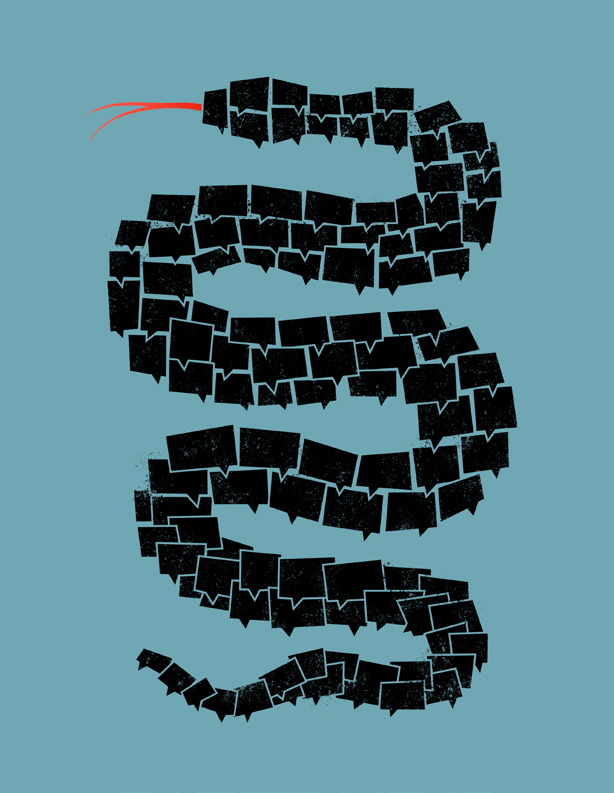15 November 2019 (Washington, DC) – When I planned my annual two week jaunt to the U.S., I had forgotten I’d be here during the “Impeachment Show”. Most of my activities involve one of my passions, astrophysics, and I have been knee deep in presentations on how NASA’s flagship Chandra X-ray Observatory telescope captures exploding stars, clusters of galaxies, and other matter … capturing and processing, on average, 1.8 GBs of data every hour. Plus presentations on the space technology used to recognize star systems and to recognize galaxies … in effect, spacial facial recognition.
Although the impeachment hearings do share some common ground with the end of my trip, my 3 days at the Techonomy 2019 retreat, the best top-table tech event you could ever attend. Yes, the idea that every company is a tech company is well understood. We have digital networking, we have computation, we have all the sensors and actuators to connect things to the real world, etc., etc. All to make a world that makes more sense, that’s more optimized. Except when you start to optimize the world with digital technologies, there’s a kind of dangerous pothole you can fall into. This event gives you a bit of context on how we got there, the mistakes we made, the consequences we created. And it’s full of my favorite people: tech boosters, curmudgeons, dark critics, skeptics, pessimists … and optimists. All mixed in. My kind of people. If you can, treat yourself and go some year.
Imagine Watergate — or even the Clinton impeachment — in a country this divided. Poll after poll after poll tell us Americans no longer agree on just about anything, down to the level of who can be trusted to arbitrate truth from fiction or how to differentiate common sense from nonsense. Democratic institutions that have long functioned on trust vanish before our eyes. Three polls over the last 3 months came out with almost identical numbers and themes:
• 45-47% of Americans say they struggle to determine whether information is true.
• Democrats and Republicans both struggle with this process, although they turn to very different gatekeepers
• Nearly two-thirds of Americans say they often come across one-sided information and about six in 10 say they regularly see conflicting reports about the same set of facts from different sources
• Between the lines, Democrats are more likely to say they rely on scientists and academics, while Republicans are more likely to trust what they hear from President Trump
• But majorities have little to no confidence in information they get about the government from social media, the president, members of Congress and businesses
The hearings on Trump’s apparent attempted bribery of Ukraine won’t be the first time a president has had to contend with, or benefit from, a hyper-partisan media. Conservative talk radio and Fox News were in full swing when Bill Clinton was impeached in 1998 … even if their rhetoric looks quaint by today’s standard. But the World Wide Web was in its infancy, and the world was then still innocent of algorithmically sorted news feeds, partisan bot armies, and state-sponsored meme warfare.
Not anymore. If the first day of hearings is any indication, social networks promise to play a powerful role in shaping the way that impeachment hearings are understood by Americans. They are also playing a powerful role in shaping the hearings themselves.
In the tsunami of hearing coverage I have stuck with Ryan Broderick of BuzzFeed. I had met him a few years back at the International Journalism Festival. He has written extensively about how technology keeps accelerating the spread of radicalism, as well as how tech companies and regulators have tried, mostly in vain, to mitigate these effects. He knows his stuff. He noted how Republican lawmakers used their time during Wednesday’s hearing to promote discredited conspiracy theories that are popular on right-wing message boards:
• There is one America that believes what was in former FBI director Robert Mueller’s report, that there was coordinated Russian interference in the 2016 presidential election, which helped the Trump campaign.
• But there is a second America that believes that in the summer of 2016, the Democratic National Committee colluded with Ukrainian nationals to frame the Trump campaign for collusion with Russia, implicating a Ukrainian American DNC contractor, Alexandra Chalupa, in the collusion and the California-based cybersecurity firm CrowdStrike in the subsequent cover-up.
• This unfounded theory has been propped up by a 2017 Politico story; reporting from right-wing political commentator John Solomon published earlier this year in The Hill newsletter; Attorney General Bill Barr’s summer travels; the yearlong personal investigation into Ukraine conducted by Rudy Giuliani, a lawyer working for Trump; and coverage from Fox News and conservative news sites.
All of that came into play during Wednesday’s hearing, sometimes implicitly and sometimes explicitly. After Republican members of Congress promoted these various smokescreens, right-wing media universally dismissed the hearing — either as an absurd exercise led by clowns, or as an outrageous abuse of power. I’m sure Trump loved watching every minute of it.
But there is one major reason why this right-wing rhetoric matters so much – because it is reassuring and will simply embolden Trump.
Of course, jump over to the other side (you readers/watchers of the New York Times and CNN), and you’re getting the sense that the case against Trump is a slam dunk, with multiple people having heard the president directly pressure his ambassador to the European Union to pursue a bribery plot. But as Ezra Klein wrote:
this impeachment is the easiest possible test case for showing our system can hold a president accountable. And yet with something like 40 percent of the country living in an alternate media universe, the basic, actual facts of the case may never penetrate into their reality.
I assume that was the Democrats’ goal: initiate impeachment proceedings, show people real witnesses answering important questions over a long enough period of time, train everyone’s eyes on the same set of facts – and maybe a greater consensus will emerge.
So far it isn’t playing out that way but it is early innings. We’ll see. In the meantime, one entity is not complaining: Facebook. Politicians are swamping the Social Media Death Star with buckets of highly partisan ads consistent with their respective worldviews. Emily Stewart and Rani Molla of Vox are doing a thorough walkthrough of how impeachment is playing out on Facebook and note Trump and Elizabeth Warren are leading the pack with ads to fire up their base and build their donor rolls. Oh, and Penzeys Spices (America’s largest independent spice retailer), is the second-highest spender on impeachment ad purchases on Facebook … tens of thousands of dollars worth of pro-impeachment advertising. Why? Because the advertising spreads farther on Facebook than non-impeachment ads, resulting in a better return on investment.
Much of the debate about whether Facebook should allow political advertising notes that it represents a small fraction of the company’s business. But that doesn’t mean it’s an insignificant business: Facebook itself has grown into a formidable political platform in recent years, with campaigns and outside groups spending $284 million on the platform during the midterm elections. While that’s just a small share of Facebook’s overall ad revenue, it’s becoming the biggest chunk of what campaigns are spending to reach constituents. That’s what it is important.
And as impeachment hearings intensify, it seems likely politicians’ spending on Facebook ads will increase. And a good number of those ads, like so much about impeachment in 2019, will seem to have been created in a parallel world. Well, they were. That’s America today: two on everything.
The infrastructure for human civilization is undeniably tangible (that is, physical, chemical, and biological), but it is increasingly virtual as well, and the virtual aspects of that infrastructure—the information ecosystem (or environment)—in many ways has become central and often critical to the way people now live all over the world. Contextualized, reliable, trustworthy information is as important to the thinking of human beings as clean air is to human breathing. Human beings depend on good information for making informed decisions.
And now we know what life is like when we cannot count on the validity and trustworthiness of the information underlying so many of our social activities. Corruption of the information ecosystem has become an existential threat to civilization as we know it because prosperity and advancement depend on a secure information infrastructure and environment that provides human beings with contextualized, reliable, trustworthy information when and where it is needed. Information is as much a part of human ecology and the essence of being human as DNA (itself a form of information) is a part of the evolutionary processes in biological systems.
In the U.S., as I have written before, for the Trump resistance movement, their burden has become a “suitcase without a handle”. Because democracy is for Gods, not humans. What Trump and his sycophants have unleashed cannot be put back in the bottle. Getting rid of the Orange mopped tyrant will do nothing.
And it will get worse all over the world. For the past 200 to 300 years, ideas have been in full flow, stimulated by ever-increasing contacts between peoples, and transmitted by accelerating means of communication. Globalization is the result: a fizzing ferment of words and images. But that accelerating means of communication has caused a retreat into populism and chauvinism. Confused by chaos, infantilized by ignorance, refugees from complexity flee to fanaticism and dogma. People are being fractionated into their own information realities. The pillars of logic, truth, and reality are being replaced with fantasy, rage, and fear. People’s cognitive architectures are being changed, and not for the better.
That will not change. Chaos will continue to reign.


